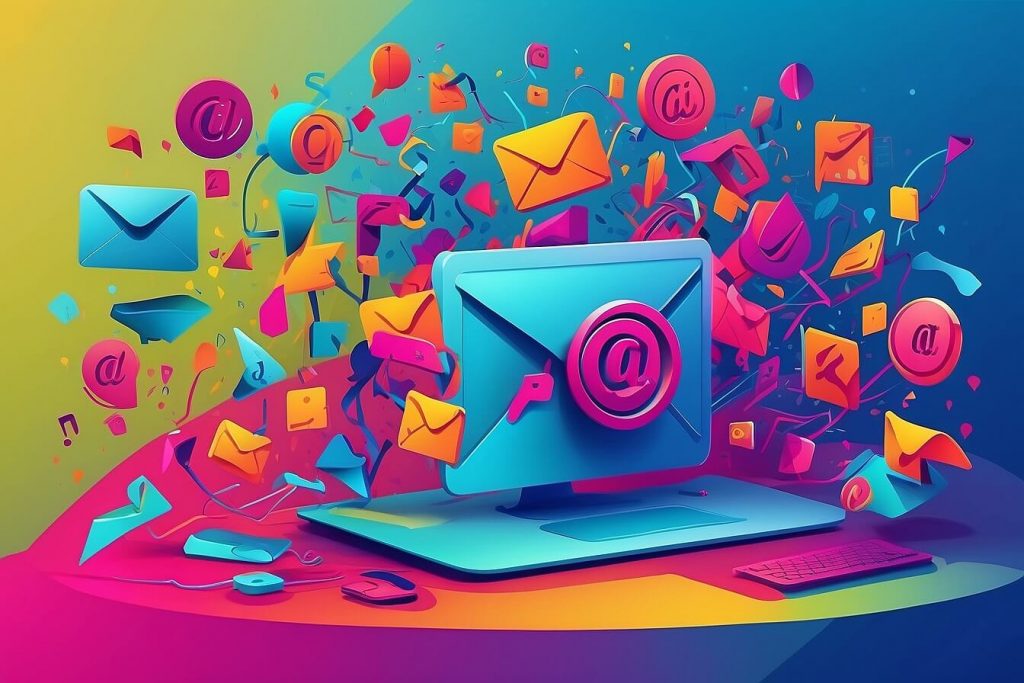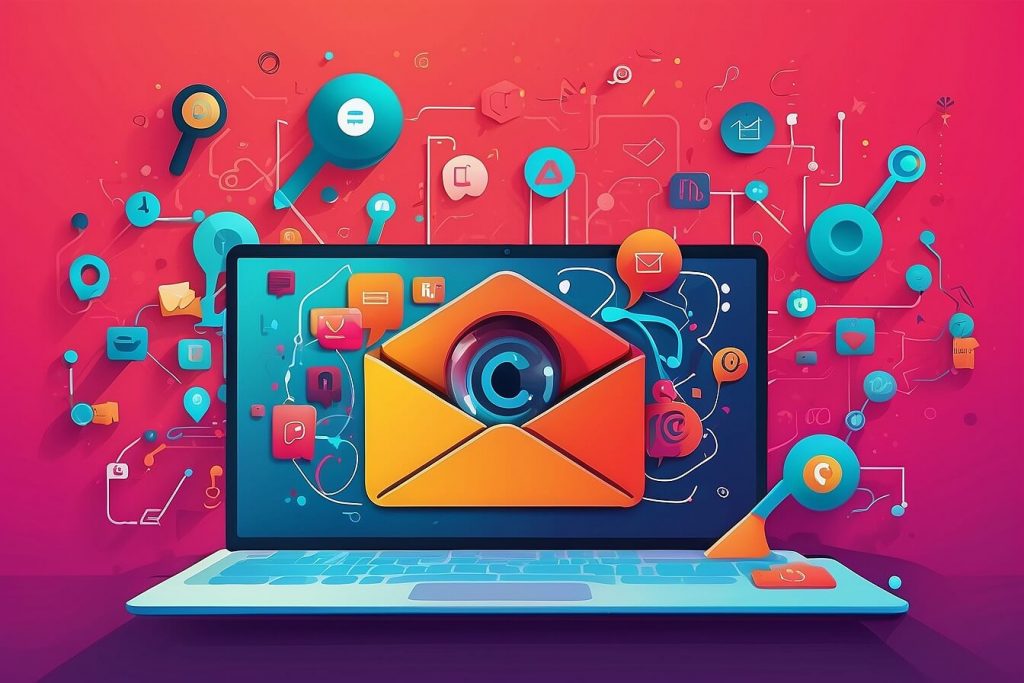Advancements in AI and Voice Technology: Revolutionizing Email Marketing
Artificial Intelligence (AI) and Voice Technology have rapidly evolved, revolutionizing various industries, including email marketing. The combined power of AI and Voice Technology allows marketers to enhance their email campaigns and engage with their customers in more personalized and impactful ways. With AI-powered algorithms, marketers can analyze vast amounts of data to gain valuable insights into consumer preferences, behaviors, and purchasing patterns. This enables them to deliver targeted content and offers to individual customers, resulting in higher open rates, click-through rates, and ultimately, increased conversions. Additionally, Voice Technology enables marketers to incorporate voice-activated features into their email campaigns, making it more convenient for customers to interact and respond while on the go. By leveraging these advancements, email marketers can create a more immersive and interactive experience for their subscribers, leading to better overall engagement and campaign performance.
Moreover, the integration of AI and Voice Technology in email marketing provides numerous benefits. One of the key advantages is the ability to automate and streamline email processes. AI-powered algorithms can automatically segment the audience, generate personalized subject lines, and schedule email sends to optimize open and click rates. This reduces manual efforts, frees up time for marketers to focus on other important tasks, and ensures consistent, timely, and targeted email communication. Additionally, Voice Technology allows recipients to interact with emails using voice commands, further enhancing the user experience. Whether it’s checking order status or making a purchase through voice recognition, customers can engage with emails hands-free, providing convenience and ease. This level of personalization and automation empowers email marketers to reach the right audience, with the right message, at the right time, resulting in improved customer satisfaction and increased ROI.
Understanding the Role of AI and Voice Assistants in Enhancing Email Marketing
AI and voice assistants are revolutionizing the field of email marketing, opening up new possibilities for enhancing customer engagement and driving conversions. By leveraging AI-powered personalization, email marketers can deliver more relevant and tailored content to their audience, resulting in higher open rates and click-through rates. AI algorithms can analyze vast amounts of data, such as past purchase history and browsing behavior, to understand individual preferences and deliver personalized recommendations and offers directly to the customer’s inbox.
Voice assistants, on the other hand, offer a convenient and hands-free way for customers to interact with their emails. By enabling voice-activated email marketing, marketers can cater to the growing number of users who rely on voice commands for various tasks. Voice technology allows users to listen to and respond to emails, making it easier for them to stay connected and engaged with brands even when they are on the go. Additionally, with advancements in natural language processing, voice assistants can provide automated responses to common queries, saving marketers valuable time and resources.
Overall, AI and voice assistants have the potential to transform email marketing by personalizing content and enhancing the customer experience. As the technology continues to evolve, it will be crucial for email marketers to stay updated and adapt their strategies to leverage these advancements effectively. By embracing AI and voice technology, marketers can unlock new opportunities and drive greater results in their email campaigns.
Leveraging AI-powered Personalization to Drive Engagement in Email Campaigns
In today’s digital age, email marketing continues to play a crucial role in engaging with customers. However, with the growing number of emails flooding people’s inboxes, it has become challenging for marketers to stand out from the competition. This is where AI-powered personalization comes into the picture.
By leveraging AI technology, email marketers can now create highly targeted and personalized campaigns that resonate with individual recipients. Through data analysis and machine learning algorithms, AI can determine the preferences and behaviors of each subscriber, allowing marketers to deliver tailored content and product recommendations. This level of personalization not only increases engagement but also enhances the customer experience, resulting in higher click-through rates and conversions.
AI-powered personalization goes beyond simply addressing recipients by their names. It enables marketers to segment their audience based on various factors such as past purchase history, browsing behavior, demographics, and more. With this information at their fingertips, marketers can develop email campaigns that are relevant, timely, and highly specific to each individual, increasing the chances of capturing their attention and driving them to take the desired action.
In conclusion, leveraging AI-powered personalization is a game-changer for email marketing. It allows marketers to go beyond mass emails and create hyper-targeted campaigns that resonate with their audience. By harnessing the power of AI, marketers can not only drive engagement but also build stronger relationships with their subscribers, resulting in more successful email campaigns. So, if you’re looking to take your email marketing to the next level, it’s time to embrace AI-powered personalization and reap the benefits it has to offer.
The Rise of Voice-Activated Email Marketing: Benefits and Challenges
Voice-activated email marketing is steadily gaining traction as businesses strive to enhance customer engagement and streamline their marketing efforts. One of the key benefits of voice-activated email marketing is its ability to offer a hands-free and convenient experience for recipients. With voice technology, users can listen to and respond to emails while performing other tasks, effectively multitasking without the need for physical interaction with their devices. This not only saves time but also provides a more seamless and user-friendly experience, making it easier for recipients to stay connected and engaged with email content.
However, alongside its benefits, voice-activated email marketing also presents a set of unique challenges. One of the main challenges is accurately converting spoken language into text and vice versa. While voice recognition technology continues to improve, there are still limitations in accurately capturing and interpreting speech, especially with accents, dialects, and complex sentence structures. Additionally, there is a need to ensure that voice-activated email marketing maintains a balance between personalization and privacy. As voice assistants become more integrated into our daily lives, concerns about data security and privacy are heightened. Striking the right balance between personalization and respecting privacy will be crucial for successful implementation of voice-activated email marketing strategies.
Exploring the Integration of Voice Technology in Email Automation Processes
The integration of voice technology in email automation processes has emerged as a promising avenue for enhancing efficiency and convenience. By incorporating voice assistants, such as Amazon Alexa or Google Assistant, into email automation systems, businesses can streamline various tasks and enable hands-free management. These voice-enabled systems can perform functions like composing and sending emails, scheduling reminders, and even providing real-time analytics. By leveraging voice technology in email automation, businesses can save time and effort, allowing marketers to focus on more strategic aspects of their campaigns.
However, the integration of voice technology in email automation processes is not without its challenges. One primary concern is ensuring the accuracy and security of voice commands. As voice technology relies on natural language processing, inaccuracies or misinterpretations may occur, leading to errors in email responses or actions. Additionally, privacy issues may arise as voice data is recorded and processed by third-party providers. Addressing these challenges requires meticulous testing and implementation of robust security measures to mitigate risks associated with voice integration. Nonetheless, when properly executed, the integration of voice technology can revolutionize email automation, driving efficiency, and productivity while enhancing the overall user experience.
Enhancing Customer Experience with Voice-Enabled Email Marketing Strategies
With the rapid advancements in AI and voice technology, email marketers are now exploring the potential of integrating voice-enabled strategies to enhance the customer experience. Voice assistants, such as Siri, Alexa, and Google Assistant, have become increasingly popular, allowing users to perform various tasks using voice commands. This technology has opened up new possibilities for email marketers to engage with their audience in a more interactive and personalized way.
By adopting voice-enabled email marketing strategies, brands can create a more convenient and engaging experience for their customers. Voice technology allows users to receive and respond to emails using natural language, eliminating the need for typing on small screens. This not only saves time but also enhances accessibility for individuals with disabilities or those on the go. Moreover, voice-enabled email marketing opens up opportunities for personalized interactions, as brands can provide tailored recommendations and offers based on the user’s preferences and previous interactions. All these factors contribute to an improved customer experience, fostering loyalty and driving engagement.
Overcoming Privacy Concerns in AI and Voice Technology for Email Marketing
As AI and voice technology continue to revolutionize the world of email marketing, concerns about privacy remain a key consideration for both marketers and consumers. One of the main concerns is the potential for these technologies to collect and store personal data without the user’s explicit consent. Companies must ensure that they are transparent about the data they collect, how it is used, and how long it is retained. By providing users with clear privacy policies and giving them control over their data, email marketers can put their customers at ease and build trust in their brand.
Another privacy concern is the risk of data breaches or unauthorized access to sensitive information. As voice technology becomes more prevalent in email marketing, it is crucial for marketers to implement robust security measures to protect the data they collect. This includes encryption protocols, strong password requirements, and regular security audits. By prioritizing data security, email marketers can minimize the risk of privacy breaches and safeguard their customers’ personal information.
Future Trends in AI and Voice Technology: Implications for Email Marketers
The rapid advancements in AI and voice technology are set to revolutionize the field of email marketing in the near future. As AI-powered assistants become more sophisticated in understanding and responding to human conversations, email marketers can leverage this technology to personalize and enhance their campaigns. By integrating voice technology into email automation processes, marketers can further streamline their communication and deliver a more immersive and engaging customer experience.
One of the key implications of these future trends is the potential to unlock new opportunities for email marketers. With AI and voice technology, marketers can gain valuable insights through advanced analytics and data processing. This can help them understand their audience better, optimize email content based on individual preferences, and ultimately improve overall campaign performance. Moreover, the integration of AI and voice technology in email analytics can provide marketers with real-time data and actionable insights, enabling them to make data-driven decisions and stay ahead of their competition.
Unlocking New Opportunities: Integrating AI and Voice Technology in Email Analytics
With the rapid advancements in AI and voice technology, email marketers are now presented with new opportunities to enhance their email analytics. By integrating AI and voice technology into email analytics tools, marketers can gain deeper insights into subscriber behavior and preferences. These advanced analytics tools are capable of analyzing vast amounts of data in real-time, uncovering valuable patterns and trends that can inform targeted email campaigns.
One major benefit of integrating AI and voice technology in email analytics is the ability to generate more accurate and actionable data. Traditional email analytics tools rely on manual data entry, which is prone to human errors and can be time-consuming. AI-powered analytics tools, on the other hand, can automate data collection and analysis, providing marketers with up-to-date and reliable insights. Voice technology can further enhance this process by allowing marketers to retrieve analytics information through voice commands, enabling quick and convenient access to critical data.
Best Practices for Implementing AI and Voice Technology in Email Marketing Campaigns
With the rapid advancements in AI and voice technology, incorporating these technologies into email marketing campaigns has become increasingly beneficial for businesses. To ensure successful implementation, it is essential to follow best practices that optimize the use of AI and voice in email marketing.
Firstly, it is crucial to have a clear understanding of the target audience and their preferences. By leveraging AI-powered personalization, businesses can gain insights into customer behavior and create tailored content that resonates with individuals. This targeted approach enhances engagement and improves the chances of conversion. Additionally, integrating voice technology enables businesses to provide a more interactive and convenient experience for recipients, making it easier for them to engage with the email content. However, privacy concerns should be addressed to ensure that users feel secure while interacting with voice-enabled emails.




